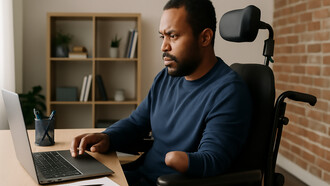Social media has become an unavoidable presence in the lives of many people. But what happens when one form of social connection causes too much anxiety? I attempt to uncover the role of social media in our highly connected world and how it can trigger anxiety and additional stress.
What is social media?
Merriam-Webster dictionary defines social media as a platform for people to communicate with each other in an online setting which:
Allows you to share photos, videos, and texts with your friends, family members, and anyone else.
Enables you to discover different individuals who have similar interests as you do and connect with them through various groups or forums online.
Provides you with a space where you can share content online and gain new information as you interact with others.
Examples of such platforms include Facebook, Instagram, Snapchat, Whatsapp, and several others.
How does social media trigger anxiety?
Social media can be a great resource for staying connected with friends and family members. However, it can also be incredibly stressful and addictive.
Here are various ways that social media can trigger anxiety:
Checking your phone or tablet constantly It's tempting to check your phone or tablet every two minutes to see what's going on in the world or check whether someone has responded to one of your posts or commented on one of your photos. But this can trigger anxiety because you might think you're missing out on something important if you don't check often.
Following people who make you feel inferior or inadequate When you look at your phone, you often see pictures of people's lives that seem more perfect than your own. This gives you unrealistic ideas of what your life should look like. That leads to feelings of inadequacy which can make you feel anxious about being seen as inferior by others who are living "perfect lives" on social media.
Social comparison Comparing yourself to other people on social media platforms such as Instagram and Facebook can make you feel less confident about your own life. Some research has also suggested that people who use Instagram and Facebook are more likely to experience feelings of loneliness, which can cause anxiety.
Feeling like a failure if you don't post often enough or get enough likes Many people feel pressured to post frequently on social media, especially if they want their followers to see their content. There's a sense that if you don't post often enough, people will stop following you or notice what you do online.
Breeding ground for cyberbullying 59% of U.S teens have experienced cyberbullying, suggests a survey by The Pew Research Centre. Social media can also lead to cyberstalking, where someone harasses someone else anonymously over the internet or through text messages or phone calls. This may cause feelings of isolation and low self-esteem among victims and panic attacks and anxiety.
Signs that social media is triggering your anxiety
If you find yourself constantly checking social media but feeling worse after doing so. It could be a sign that social media is triggering your anxiety.
Here are some signs of social media anxiety:
You feel like you can't stop checking your phone or laptop, even when you're not supposed to or when there's something else more important going on in your life.
It feels like it takes a lot of effort to log off once you've started scrolling through Instagram or Twitter feeds, even if no one is waiting for your response.
You get into arguments with friends and family members because they see how much time you spend online and feel jealous or upset about it.
You find yourself feeling sad after spending time on social media even if nothing awful happened while you were online.
You're constantly comparing yourself, your own life, and achievements to others and find yourself lacking.
You feel constantly worried about what other people think about you or what might happen if someone finds out something about you that makes them think less of you.
You constantly check your phone screen during conversations with friends and family members.
If these scenarios sound familiar and make sense to you, then yes! Social media may be triggering your anxiety.
How to reduce anxiety caused by social media
Here are 5 ways to reduce the stress and pressure of being online:
Don't check it constantly If you find yourself stuck constantly checking your phone or computer for updates on social media sites like Twitter and Instagram, try setting a timer and only checking once an hour or so.That way, you won't get sucked into looking at every post on your newsfeed as soon as they go live.
Turn off push notifications on your phone Turn them off so your phone doesn't buzz whenever someone comments on an Instagram photo or tweets something at you. You can still login manually when you want to see what people have been up to, but at least this way, you won't get distracted by their updates when they pop up on your screen all the time.
Don't compare yourself to others It's easy to compare yourself to other people on social media, but that's not how we were meant to live our lives. You are unique, and you have a unique path in life.
Limit your time spent on social media Many people find that when they spend too much time on social media sites like Facebook or Instagram, they start feeling anxious about how much time they're spending there instead of focusing on other important things such as work. Try setting limits for yourself. For example, only spend 30 minutes per day on social media platforms.
Get off social media at least once a day The best way to reduce anxiety caused by social media is to get away from it entirely for at least one hour each day. If you're having trouble disconnecting, try setting the alarm for 30 minutes or an hour before bed. You have time to go offline before getting into bed when it goes off.
Conclusion
Social media can be an incredible way to connect with family, friends, and the world. But It may also negatively affect your mental health if you're not careful.
If you feel like social media is triggering your anxiety, take steps to monitor and control what you're seeing. Change your privacy settings, step away from the screen occasionally, and consider limiting how often you use it.
And remember that just because other people's lives seem perfect doesn't mean they really are.
References
Cyberbullying (2018).
Emily B. O’Day, Richard G. Heimberg. (2021). Social media use, social anxiety, and loneliness: A systematic review. Computers in Human Behaviour Reports.
Impact of social media on youth mental health.
Karim, F., Oyewande, A. A., Abdalla, L. F., Chaudhry Ehsanullah, R., & Khan, S. (2020). Social Media Use and Its Connection to Mental Health: A Systematic Review Cureus.















